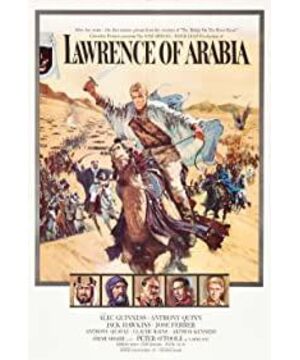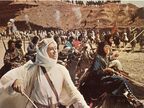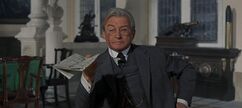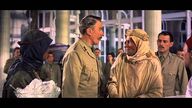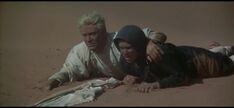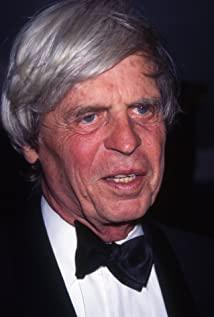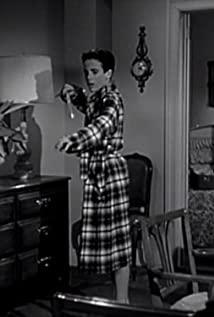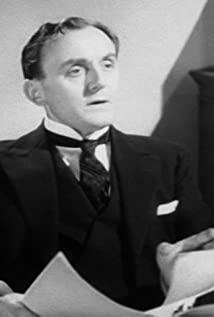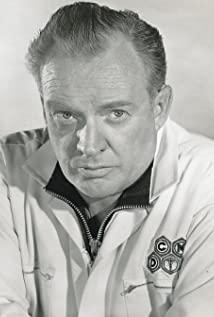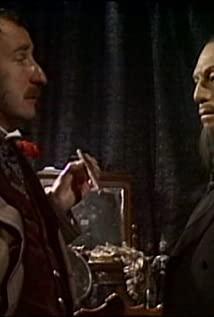The interest in this film came from the poetic and Russian aesthetics in the movie "Doctor Zhivag". After noticing the director David Lynn, I realized that the famous "Lawrence of Arabia" was also The work of this master artist.
Director Lynn's questioning of personal emotions and identities in the torrent of the times makes the film no longer a simple interpretation of history, but allows people in history to have fuller feelings and real images.
The film begins with confusing comments about Lawrence from different people. Some held him with reverence and reverence, some dismissed him, an arrogant official commented on the dead Lawrence to reporters: "He once did some unimportant work for me", the stranger asked, "He is worthy of you Bury him here?" People who love him say, "He's the most extraordinary person I've ever met," and people who hate him say, "He's the most megalomaniac I've ever met."
What kind of person is Lawrence? At the beginning of the film, Lawrence is shown as a person who is not very popular in the British army. He does not obey the discipline of the army, appears casual, cynical, and seems out of tune with the strict military atmosphere.
Such a man is clearly a fringe in the army, his confidence is seen as arrogant, he is deliberately showing off his talents, his superiors say he is "intolerable", and yet he is given a trip to the Arabian desert to learn more There, opportunities for military cooperation. It shows that his military talent is seen in the eyes. Because of this, they gave him this opportunity to see what this megalomaniac can do?
In the film, Lawrence is also confused and uncertain about his identity, which is constantly changing. He is sometimes confident that he can "turn a small place into a country", and sometimes has low self-esteem, and is reluctant to talk about his own life experience. When asked if he was a nobleman, he answered yes, and when asked if he was rich, he answered no.
When Ali, the leader of Harris, asked about his identity for the first time, he revealed that he was an illegitimate child. Although his father was a nobleman, his identity as an illegitimate child made it difficult for him to be confident. repressed.
Lawrence, played by Peter O'Toole, has blue eyes always revealing melancholy, which adds a bit of feminine temperament to him. He is slender and a little slender and weak.
When Lawrence put on the Arabian robe for the first time, looking at the reflection of himself on the saber, he was happy like a child, opened his arms, flew like a bird, danced gracefully, and didn't even notice when there was a person around him. . This episode can be said to be the most relaxing and joyous moment in the film. Lawrence, who first entered the desert, has a romantic imagination and yearning for the desert and Arabs.
In Lawrence's dream, helping the Arabs to fight against the Turkish army filled him with unparalleled courage, crossing the desert and carrying a noble mission, making him invincible. When he first entered the desert, he treated the Arabs honestly with idealistic passion, and won their respect and love.
In the movie, when Lawrence led the Arabs to take down Akaba and picked up the bouquet that the Arabs offered him under the golden sunset by the sea, Ali told him, "This is a flower for princes, or heroes," but Lawrence replied: "I'm neither"
"Then what are you?"
"have no idea"
He was confused about his identity. The prince and the poor boy could be the same person. The identity of people was divided by their origin, which made him bitter and unspeakable.
He knows that he is not a prince, and he does not think he is a hero. Lawrence was humble when he first entered the desert, a sober and rational understanding of himself.
His colleagues used to be indignant at his arrogance, asking him, "What do you think you are?"
He knew that his position was really just an ordinary officer in the British army, coming with a British mission. But he is not without his own heroic dreams, he has his own curiosity and enthusiasm for Arabs.
When Lawrence won several battles against Turkish troops and trains, he began to feel like a different man, and just as he was starting to drift a little, he was met with a cold shot and later capture.
From the beginning, he was confused by his own origin and understood his ordinaryness. After several victories in wars and the media's touting of his personal charm myth, he forgot his ordinaryness. He was pushy, and he took the risk, which made him suffer.
In the film, the leader of the tribe, Audi, spoke out about Lawrence's weakness, "You will use up your nine lives very quickly."
After Lawrence was captured and released from prison, he lost his soul, as if he had lost eight lives. He began to wonder about his identity and role. He thought he could lead the Arabs to freedom, but the repeated killings, the brutal destruction of his body and spirit, made him begin to doubt the meaning of it all.
When a person is successful, he often overestimates himself and inflates himself, and when he fails, he inevitably begins to doubt himself again. Ordinary or extraordinary, in the final analysis, it is a person's self-knowledge. Recognizing one's own ordinary can only be humble and rational. The so-called extraordinary, people do have their own talents, but extraordinary is more of a kind of ordinary life. Beyond desire, ambition for success, honor. Lawrence's time and position is an opportunity, an adventure, it is extraordinary, his dream beyond personal interests, to help the Arabs rebel against Turkey, to build a free country is extraordinary, great.
When the great dream collided with the ruthless reality, Lawrence often fell into a kind of spiritual confusion, that is, many times people asked this painful philosophy, who am I? Where am I? What am I doing?
When he first entered the desert, he treated the people around him with the spirit of equality and fraternity, and was willing to share weal and woe with the people in the desert. His pity and love for life were quickly replaced by the slaughter of desert tribes. From the beginning, he had to shoot at his companions, and after he was captured, his spirit was strongly stimulated and he began to kill. He was no longer the kind and humane Lawrence that he used to be. The war has caused irreparable damage to him. Full of ideals and humanity, he can be said to be dead and destroyed.
When he found out that his dream came true, when Damascus was conquered, that was when his dream was shattered, and he had to write a letter of resignation. He's a military expert, but he doesn't know anything about politics, or he doesn't have the identity to join the political wrestling. He's British and doesn't want Britain to meddle in the freedom of the Arabs, but he's not Arab and can't be in the Arab world. role in people.
He's just a military mission performer, and when his mission is done, as King Sather said, "Politics is an old man's game", excludes him.
Lawrence, who was hailed as a god by the media, returned to the ordinary. From the peak of honor, back to the ordinary world. He died in a car accident, on the cramped field road, like countless ordinary people. No longer the superman who was like a god possessed.
When victory came, there was no longer the excitement of success, but a tragic victory that paid a huge price. Lawrence's blue eyes were filled with great emptiness and dazedness, and he was powerless to continue playing this political game.
The colorful desert and war scenes in the film are exciting. Like Lawrence, people have paid enthusiasm and expectations for this. However, the fact has broken all the good wishes. Lawrence was stunned, and the Arabs left. Politics after the war is the longer struggle. Lawrence's mission has been accomplished.
After watching the movie, I just felt a huge sense of loss, just like the protagonist in the movie, disappointed and overwhelmed. Lawrence, who was once full of confidence and passionate ideals, no longer exists.
We always fantasize about adventure and dream of an extraordinary life. However, after watching the movie, in addition to satisfying a curiosity about the exotic customs of the Arab world, we have a different understanding of ordinary life. is truly valuable. Those fighting, looting, and killing are not the life people really want.
Ali, the leader of the Harris tribe in the play, learns to accept all this and decides to stay and study "politics".
"You answer, but you don't say anything, this is politics" is the definition of politics by American journalists.
In addition to the protagonists, Ali and Oda's roles are very full. Unlike Lawrence, who is feminine and melancholy and often falls into identity anxiety, Ali is the real leader in the desert, and he has to assume the responsibility of leadership. His appearance in the film is mysterious and mysterious. Evil, a black figure emerged from the distance of the desert. He killed the guide who led Lawrence to the desert at a very fast speed. Lawrence was reluctant to talk to him for a long time. Ali showed the Arabs in an extremely cruel environment. Suspicious character.
The tribal leader Oda is realistic and sober, rough, cunning and ferocious. He likes money and pursues "glory things". He is sensitive to political games. "There are a lot of tricks now, but I'm an old dog."
The rhythm of the first half of the film is relatively slow, but the leisurely camels and the magnificent sunset on the horizon show the vastness of the desert, which is also the reason why Lawrence gradually fell in love with the desert. When a person starts a journey, he always fantasizes about building merits, the passion for exploring, and making the journey happy because of dreams.
In the movie, the pictures of Arabs galloping on camels and horses are fantastic and spectacular. The sturdy and brave safari people collide with modern guns and guns, which is actually tragic.
The dream that Lawrence pursued was shattered, and the British poet Byron also fought for the dream of freedom. Whether what people do is worth it can only be experienced by those who struggle for it. It must be a mixture of joy and sorrow, great and small, maybe Just our own feelings. The dream will be shattered, but at least it shows that people have struggled for it and lived.
In a world where the strong eat the weak, what will be the way out for the weak and small? Or as in the video? I hope that Lawrence's enthusiasm is not in vain, I hope that people can be free and the world will be at peace.
View more about Lawrence of Arabia reviews


